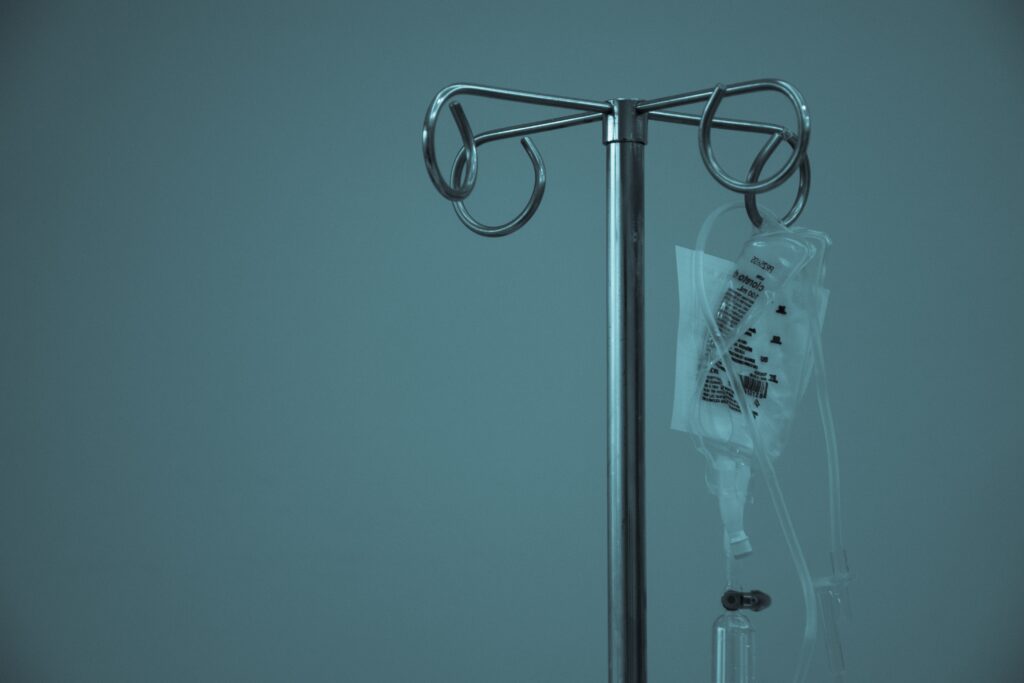Dehydration is a severe condition that can cause many problems for people. Not only can it cause discomfort, but it can also lead to more serious health issues if not treated quickly. In this article, we’re going to explore the topic of can you get IV fluids at urgent care. We’ll discuss the symptoms, the treatments, and the risks\benefits of iv fluids for dehydration. So whether you’re dehydrated due to the flu or something else, read on to find out what you need to do.
What is the main purpose of IV fluids?
IV fluids are often used to treat various medical conditions, such as dehydration and shock. They replenish the body with essential vitamins, minerals, electrolytes, and other nutrients.
They are also used to correct certain nutritional deficiencies in patients who cannot take food or drink because of their condition. IV fluids can be given through an intravenous (IV) line into a vein in your arm or hand.
Several factors affect the success rate of IV treatment:
– The type and severity of the illness/injury
– The patient’s age, weight, general health condition, etc.
– The person administering the treatment must know accurately how to give effective doses of each medication.
What are the 3 main types of IV fluids?
IV fluids are medical treatments that help provide hydration, electrolytes, and nutrients to patients intravenously. There are three main types of IV fluids: isotonic, hypotonic, and hypertonic.
Isotonic IV fluid is the most common type and contains equal amounts of water and minerals (electrolytes). This type of IV fluid is used to restore normal blood volume and maintain blood pressure levels. At the same time, hypotonic IV fluid has a lower concentration of minerals than isotonic IV fluid. It is used to treat conditions where the body does not have enough liquid or salts in its tissues (such as dehydration due to vomiting or diarrhea). Finally, hypertonic IV solution has a higher concentration of minerals than any other and is usually only used for emergency treatment when standard treatments fail.
What are the most common symptoms of dehydration?
Dehydration is a prevalent problem, and it can cause a host of unpleasant symptoms. The most common sign of dehydration is thirst, but other symptoms may include fatigue, lightheadedness, nausea, and vomiting. In severe cases, dehydration can lead to seizures.
So how do you know if you are dehydrated? The best way to determine whether you are dehydrated is to take a hydration test. This will measure your body’s fluid levels and give you a comprehensive diagnosis. If necessary, treatment will begin with rehydrating yourself electrolytically before proceeding to more aggressive methods (such as IV fluids).
Which IV is best for dehydration?
There is no single best IV fluid for dehydration, as the most effective solution depends on the individual’s specific situation and health condition. However, some of the most common IV fluids used to treat dehydration include plasma (plasma expand), dextrose-electrolyte Solution (DEX), lactate buffered saline (LBS), and Ringer’s solution.
Each of these fluids has its advantages and disadvantages, so it is important to choose one that will work best for you. Plasma expand fluid is often recommended when there are low blood counts or when a patient cannot tolerate other fluids due to infection risks. DEX is also useful in cases where electrolytes are lost quickly or during exercise; LBS can be helpful when treating chronic pain; and Ringer’s solution can help restore salt balance if water intake is inadequate or insufficient potassium levels exist in the body.
What should I drink when dehydrated?
There are a few key things to remember when it comes to dehydration. First and foremost, drink plenty of fluids! Second, make sure you’re eating enough healthy food. Finally, take care when drinking alcoholic beverages – they can dehydrate you even more than usual.
So what should I drink specifically when I’m dehydrated? There are many options available for dehydration relief, but water is usually the best choice. If you don’t have access to water or feel drinking too much will upset your stomach, fruit juices, tea, milk, or sports drinks can be useful alternatives. Always check with your doctor before taking any new medications or supplements if you’re feeling particularly ill.
Does urgent care give IV fluids?
So, does urgent care do IV fluids? The truth is that both Urgent Care and Emergency Care centers offer IV fluids for dehydrated patients. Dehydration is the most common complaint among patients seeking emergency care. It can often be due to several factors – overexposure to the sun or heat, diarrhea or vomiting, insufficient hydration from drinking water or other beverages, etc.
IV fluid therapy is a critical part of treating dehydration. It helps restore lost salt/sodium levels and replaces electrolytes as well as proteins lost in diarrhea and vomiting. In addition to relieving symptoms, intravenous fluids also help reduce the risk of developing delirium (a condition caused by severe dehydration that leads to confusion) and kidney failure.
Urgent Care Centers typically administer IV fluids at the time of intake; Emergency Care facilities may do so after a patient has been evaluated before being admitted into observation or treatment mode.
Should I go to urgent care if I feel dehydrated?
There is no one-size-fits-all answer to this question, as the severity of dehydration and whether it requires medical attention will vary from person to person. But suppose you feel like you are experiencing symptoms of dehydration (such as dizziness, fatigue, lightheadedness, rapid breathing, or heart rate). In that case, it’s recommended that you visit an urgent care center for evaluation. Urgent care centers can check your blood pressure and pulse and provide necessary treatment for common dehydration symptoms such as nausea and vomiting. Depending on the dehydration level, a doctor may even order additional treatments or medications to help improve hydration levels.

